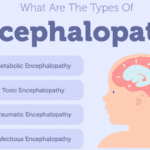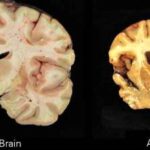Aphasia Unveiled: Communication Aids for Caregivers

Discover practical strategies and tools in "Aphasia Unveiled: Communication Aids for Caregivers." These aids, such as whiteboards, picture catalogs, and tablet software, are designed to empower you with the capability and confidence to support your loved ones with aphasia.
Understanding Dementia and Wandering

Discover how to manage wandering in dementia with practical strategies. Learn to create a safe environment and prevent risks effectively.
Safe Spaces: Camouflage Tactics to Protect Dementia Patients

Creating a safe space for dementia patients involves innovative techniques like camouflage to prevent wandering. By disguising doors as walls or windows, caregivers can reduce elopement risk and ensure a secure, comforting environment. Learn how these methods can enhance safety and dignity.
Mindful Communication: What to Avoid Saying to Seriously Ill Patients

Discover compassionate ways to communicate with seriously ill patients. This comprehensive guide helps caregivers, family members, and healthcare professionals avoid common communication pitfalls while fostering meaningful, supportive conversations that respect patients' dignity and emotional needs.
Presence Visits in Hospice

Hospice nurses' presence visits provide vital emotional support and companionship for terminally ill patients and their families. Learn how these visits offer comfort, dignity, and peace during end-of-life care.
Caring for Your Terminally Ill Loved One: Home or Facility Care?

Deciding between home care and facility care for a terminally ill loved one requires careful consideration of medical, emotional, and practical factors to ensure comfort and dignity.
Bullosis Diabeticorum: What You Need to Know

Discover Bullosis Diabeticorum, a rare skin condition in people with diabetes causing painless blisters. Learn how to identify, treat, and care for loved ones with BD and a terminal illness.
Do You Need Hospital Experience to Be a Hospice Nurse?

In this article, we will explore whether medical-surgical or critical care experience is necessary to become a hospice nurse, the benefits and challenges of working in hospice care, the educational and licensure requirements for hospice nurses, and the resources and opportunities for professional development and networking in hospice nursing.
Caring for a Loved One in the Terminal Stage of Metabolic Encephalopathy

Caring for a loved one with terminal metabolic encephalopathy requires compassion and understanding. This guide provides insights into recognizing symptoms, adapting care strategies, and supporting the patient and caregiver through this challenging journey.
Hospice Recertification and Eligibility: What You Need to Know as a Family Member

Understanding hospice recertification is crucial for ensuring your loved one receives the necessary care. Learn about the process, what to expect, and how to prepare.
Pacemakers and Implantable Cardioverter Defibrillators: A Guide for Patients and Caregivers

Learn about the differences between pacemakers and ICDs, their functions, and the implications for patients and caregivers. Discover why pacemakers should stay on, and ICDs should be turned off at the end of life for comfort and dignity.
Chronic Traumatic Encephalopathy (CTE) Dementia: What You Need to Know

Learn about Chronic Traumatic Encephalopathy (CTE) dementia, its symptoms, diagnosis, and care strategies to support those affected and their families.
The Unforeseen Recovery: When Hospice Care Leads to Healing

Hospice care is often seen as the final chapter, but sometimes, it leads to unexpected recoveries. This article explores stories of resilience and healing in hospice care, reminding us that hope and recovery can still be part of the journey.
